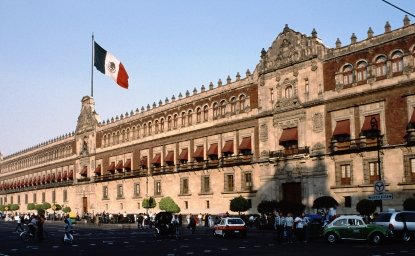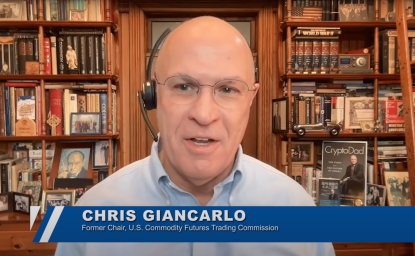Something Old, Something New, Something Borrowed, and Something Blue
The “unveiling” of Jose Antonio Meade as presidential pre-candidate of the PRI fulfilled the tradition of something old, something new, something borrowed, and something blue.
The “unveiling” of Jose Antonio Meade as presidential pre-candidate of the PRI fulfilled the tradition of something old, something new, something borrowed, and something blue.

The “unveiling” of Jose Antonio Meade as presidential pre-candidate of the PRI fulfilled the tradition of something old, something new, something borrowed, and something blue.
The political liturgy adhered to its protocol. In order to seal the marriage between the aspirant and the party, the “unveiling” of Jose Antonio Meade as presidential pre-candidate of Institutional Revolutionary Party (PRI) fulfilled the tradition of the old, the new, the borrowed, and the blue.
What is the new? It is the person himself: a former secretary of state with outstanding academic credentials and proven experience in public administration. What is unprecedented is his lack of party affiliation and electoral experience. Jose Anotnio Meade has never campaigned or competed for public office before.
What is precedented/old is the liturgy itself and the contrast with modernity: the most ancient ritual for the most novel candidacy. What is also old are the signals, messages, and customs not seen since the PRI held power in the last century. The novel aspirant is wrapped up by the most archaic sectors and political organizations.
As unusual as it may seem, what is being/something borrowed is the Party. A worn-out PRI - faced with the discredit of politicians and parties around the world and the rise of anti-establishment candidacies - is committed to championing an outsider, a technocrat who has led four secretaries in two different administrations. This is fireproof for the PRI’s pragmatism.
Lastly, the PRI’s ritual was fulfilled to the point of including a shade of blue. Almost immediately after the announcement of his pre-candidacy, Meade received public support from the “rebel senators,” including Ernesto Cordero and Javier Lozano. Even the first former PAN President, Vicente Fox - a fervent supporter of Enrique Peña Nieto since 2012 and an admirer of Foreign Minister Videgaray - voiced his support for Jose Antonio Meade.
So far, the story is developing without major setbacks. There is no doubt about President Peña Nieto’s merit, who has led the process with great political skill. The path has not been easy: pushing a “sympathizer” to the highest elected office goes against the PRI culture that rewards militancy, discipline, and unity. Even so, the other pre-candidates, leaders of Congress, and prominent party figures have closed ranks around Meade. The most visible dissident, Ivonne Ortega, has kept an eloquent silence, which smells like capitulation.
Of course, there is still a long way to go. Years ago, during the times of tricolor presidentialism, one of the meta-constitutional powers of the president in turn (Carpizo dixit) was to elect its successor. In the effervescent Mexican democracy of the 21st century, the PRI pre-candidate will have to compete in adverse conditions. Meade will need to convince the hard vote of the PRI, the nonconformists of PAN, and the millions of young people who do not believe in parties.
In the end, it will be shown whether the risky bet will win. For now, it has to be recognized that despite being in third place on voter intention in the polls, the tricolor “unveiling” kept the entire country attentive.
The views expressed here are solely those of the author.


The Mexico Institute seeks to improve understanding, communication, and cooperation between Mexico and the United States by promoting original research, encouraging public discussion, and proposing policy options for enhancing the bilateral relationship. A binational Advisory Board, chaired by Luis Téllez and Earl Anthony Wayne, oversees the work of the Mexico Institute. Read more


